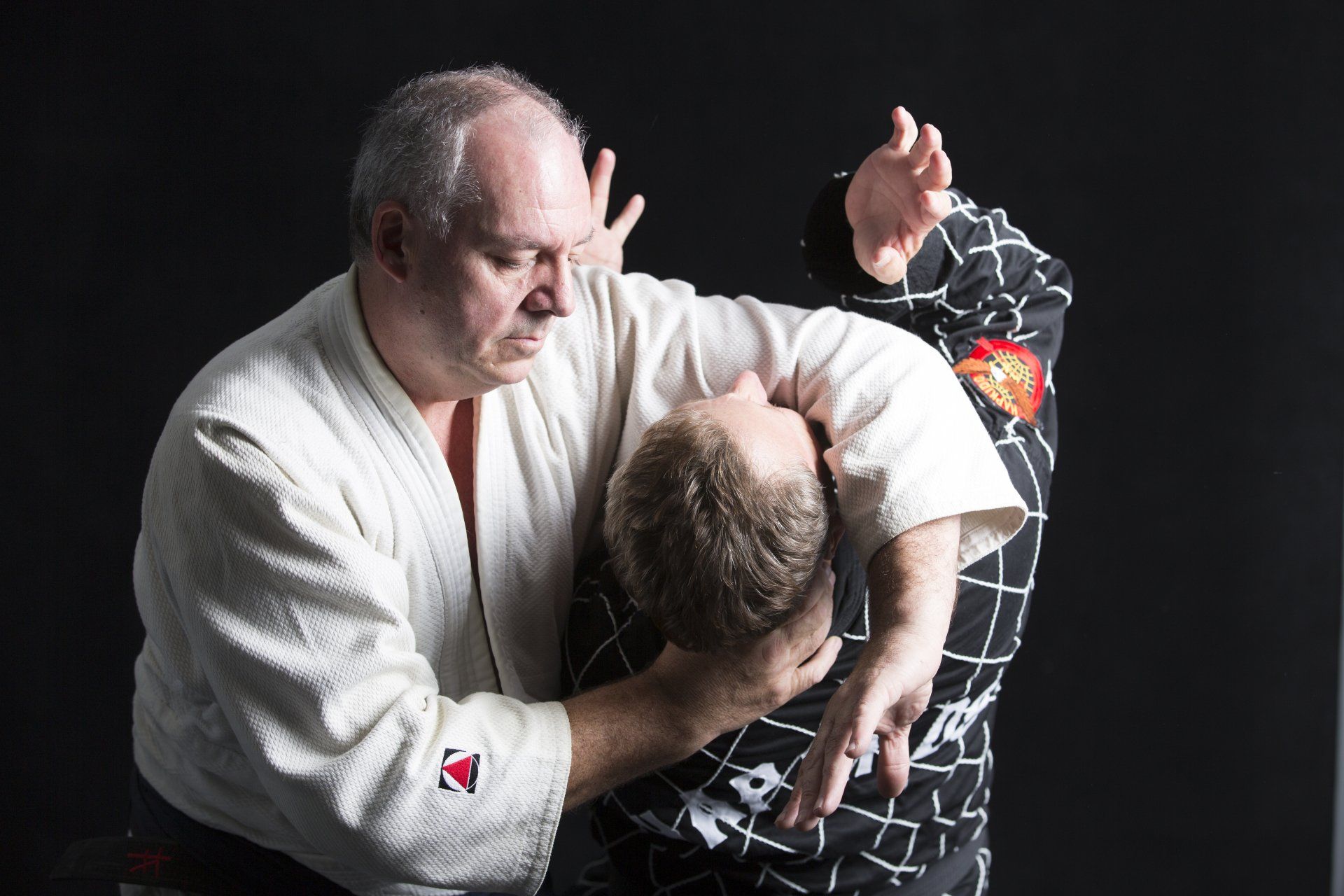Martial Arts Instructor Qualifications
WHAT ARE THE APPROPRIATE QUALIFICATIONS - GRADINGS FOR MARTIAL ARTS INSTRUCTORS?
What is required for Martial Arts Instructors to Teach?
Instructor qualifications is a complex area to clearly identify exactly what is required by legislation, what is an industry standard, what is recognised by corporations and what the consumer expects to see.
There isn’t any legislation that states any martial arts instructor requires a specific qualification to teach. There are however laws around the operation of a business, hiring a venue, working with children, duty of care, risk management, OH&S and insurance for example, that can have a impact on an instructor.
We have identified several elements that martial artists can draw from to be recognised as a qualified instructor. Our member screening process takes this into account as we allocate points for experience, grades, formal qualifications and industry contributes, to create a comprehensive method of assessing an instructor’s competency and effectiveness to teach martial arts.
Instructor Qualifications in Martial Arts – What’s Required in Australia?
Understanding the Legal, Industry, and Consumer Expectations
There is no single legislative requirement in Australia that mandates martial arts instructors to hold specific qualifications to teach. However, instructors do have legal obligations and professional responsibilities that impact how they operate.
These include:
- Duty of care
- Working With Children and Police Checks
- Insurance and business compliance
- Risk management and OH&S policies
This article outlines what martial arts instructors should have in place to be considered qualified, professional, and trustworthy—according to government guidelines, industry standards, and consumer expectations.
Is Martial Arts Instructor Certification Required by Law?
No formal law says you must hold a government licence to teach martial arts in Australia. However, instructors must comply with a range of existing laws and regulations, including:
Requirement - Working With Children Check (WWCC)
Source or Authority-State-based (VIC: Working with Children Act 2005)
Requirement - Public Liability & Professional Insurance
Source or Authority - Required by venues and insurers
Requirement - Risk Management / OH&S
Source or Authority - Safe Work Australia guidelines
Requirement - Fair Business Conduct
Source or Authority - Australian Consumer Law (ACCC)
Requirement - Venue Hire or Commercial Lease Compliance
Source or Authority - Local councils, landlords, or venue regulations
Failure to comply may result in denial of venue access, loss of insurance, or reputational damage.
🧠 What Makes a Martial Arts Instructor “Qualified”?
Martial Arts Australia (MAA) recognises that no single credential defines a qualified instructor, their competence is assessed across multiple criteria.
MAA addresses and considers all authorities that play a role to quantify Instructor qualifications and competencies such as:
IN - insurance companies, IND - industry, PPB - Peak Professional Body, GOV - Government, NSO - National sporting orginisation
RTO - Registered training orginisation, TAFE - Technical and Further Education, ASC - Australian Sport Commission, UNI - University
ASQA - Australian Skills Quality Authority, AMACS - Australian Martial Arts Coaching System.
✅ 1. Time and Experience
It typically takes 4–5 years of consistent training to reach a black belt (or a blue/purple belt in Brazilian Jiu-Jitsu), the minimum often
expected to start your own school. Instructor competency is often built through assistant roles and team leader training within a club setting.
✅ 2. Formal Qualifications
🔹 Entry-Level:
- In-house instructor development programs
- Sport Australia’s former General Principles of Coaching course
- Introductory coaching courses from AMACS or a Registered Training Organisation (RTO)
🔹 Advanced-Level:
- Certificate III or IV in Sports Coaching or Fitness
- Diploma in Sport or Exercise Science
- TAE40122 – Certificate IV in Training and Assessment
(essential for program design and adult teaching)
While fitness and sports coaching certifications do not cover martial arts specifics, they provide essential skills in:
- Communication
- Risk management
- Coaching science
- Injury prevention
✅ 3. Martial Arts Rank or Belt
In many systems, the black belt is the minimum rank to be recognised as instructor-level. For Brazilian Jiu-Jitsu, most insurers require
a purple belt or higher. For arts like Muay Thai, Kung Fu, MMA, or Tai Chi (which may not have belts), instructor recognition is typically based on:
- Years of practice
- Time under a recognised lineage or master
- Completion of coaching qualifications
✅ 4. Competition History
Participation in tournaments or fight shows demonstrates skill and dedication. Higher recognition is given to:
- Placing in competitions
- Long-term fighting experience
- National or international recognition
However, being a skilled competitor doesn’t guarantee good coaching ability. Effective instructors know how to transfer skills safely,
adapt to student needs, and communicate clearly—skills often learned through formal coaching education.
📚 What Else Should Instructors Have?
🔐 Legal Checks & Compliance
Professional martial arts instructors should have:
- ✅ Valid Working With Children Check (WWCC)
- ✅ Police Check (especially when working with youth)
- ✅ Weapons licence (if teaching armed martial arts)
- ✅ COVID Safety Plan (if required)
- ✅ Risk and Emergency Management Plan
- ✅ Insurance certificate (public liability and professional indemnity)
🌐 Why Professional Affiliations Matter
Joining a peak industry body such as Martial Arts Australia demonstrates:
- A commitment to higher learning
- Adherence to a national code of conduct
- Access to industry updates and support
- Verified screening and accountability
- Ongoing professional development
MAA uses a points-based recognition system, evaluating:
- Years of training and coaching
- Dan rankings or belt level
- Formal education
- Community and industry contribution
- Business qualifications (HR, finance, admin, etc.)
✅ Recognition Across Industries
✔ Government & National Sports Organisations (NSOs)
NSOs such as Judo Australia or Taekwondo Australia previously partnered with the Australian Sports Commission (ASC) to deliver the National Coaching Accreditation Scheme (NCAS). Though NCAS has been retired, these bodies now run their own non-government-endorsed training.
✔ Industry Recognition
Associations like MAA and AMACS offer industry-specific coaching programs, ongoing education, risk management resources, and accreditation with Star Ratings—widely accepted by insurers, venues, and consumers.
✔ Corporate & Commercial Recognition
Corporate sponsors, schools, and councils are more likely to engage with instructors who are:
- Professionally accredited
- Association members
- Insured and compliant with national standards
✅ Why This Matters to Consumers
Modern consumers and parents want:
- Assurance that instructors are vetted and accountable
- Confidence in the instructor’s qualifications and insurance
- Trust in a governing body that supports ethics and safety
Being a member of a professional body like MAA sends a clear signal:
“This instructor is qualified, compliant, and committed to high standards.”
Martial Arts Gradings - Rank Examinations - Upgrades
We the opportunity to gain higher Dan gradings twice per year or as requested. We now work with a number of associations including the International Board of Kanchos (IBOK) and other instructors. This offers a greater level of expertise on the Master Panel ultimately provides more credibility.
In the past our
Founder Graham Slater and
Regional Directors have flown interstate / overseas to coordinate grading panels and run seminars.
These days we do most gradings twice per year (face to face) and on demand via zoom meetings. We have enhanced the process and outcomes by working with the
International Board of Kanchos (IBOK) chaired
Grant Bannister to make these gradings more creditable, accessible and prestigious event.
Our panel of
masters take it as an honour, to observe and make comments of your performance and give feedback to enhance the candidate's personal development. At the successful completion of your presentation the masters will offer further support before issuing a certificate.
This
certificate is signed by the Masters for the grade / rank that the panel feel you can confidently wear in your given art.
Contemplating a Martial Arts Grading?
Embarking on your next Dan grade in my opinion should be a very memorable occasion as one would have put in a lot of hard work and sacrifice to reach. That said, how you perform and who witnesses your presentation is of real importance. You want to give it everything you have irrespective of whether you pass or fail and you want to be acknowledged by people you respect and respect you for your courage.
What are international standards for wait times?
The MAA Grading system has been based on the international Martial Arts timelines
1st dan – 2nd dan = 2 years
2nd dan – 3rd dan = 3 years
3rd dan – 4th dan = 4 years
4th dan – 5th dan = 5 years
5th dan – 6th dan = 6 years
6th dan – 7th dan = 7 years
7th dan - 8th dan = 8 years
The Grading Process
Instructors can select a face to face process or a live online grading presentation, or by submitting a video for assessment. The criteria is discussed with candidates submitting their own grading curriculum for their next grade.
How much does each grade cost?
The face to face model costing model includes specialised training / mentoring and filming of the event with certificate presentation. If you pass the grading you can be sure you can wear the level achieved worldwide with pride knowing that you have been evaluated by the most experienced and creditable masters in the country.
Video submission - 2nd Dan Black Belt - 8th dan =
$200 - $750
Live online presentation - 2nd Dan Black Belt - 8th dan =
$350 - $950
Live in front of our Master Panel - 2nd Dan Black Belt - 8th dan = POA
For Group Discounts, please discuss.
THE OUTCOME
Successful candidates are awarded a Certificate of Merit for the Rank / Title and in some cases a belt is also given.
All ranks are registered with Martial Arts Australia and kept for all time and made available for authentication.
Popular Questions
The answers to the questions martial artist have been asking!


